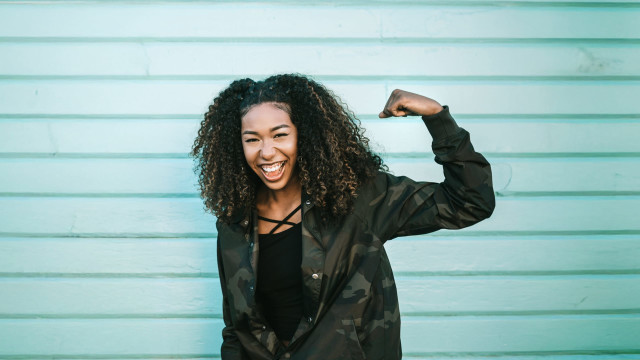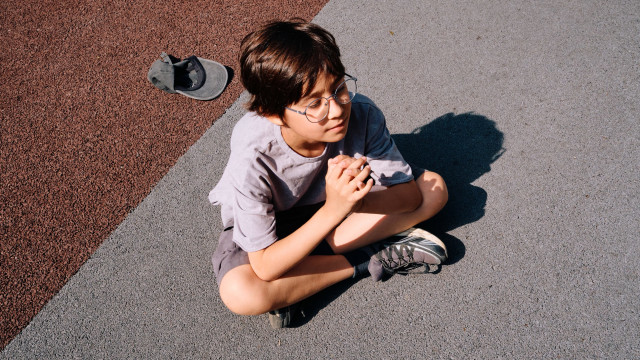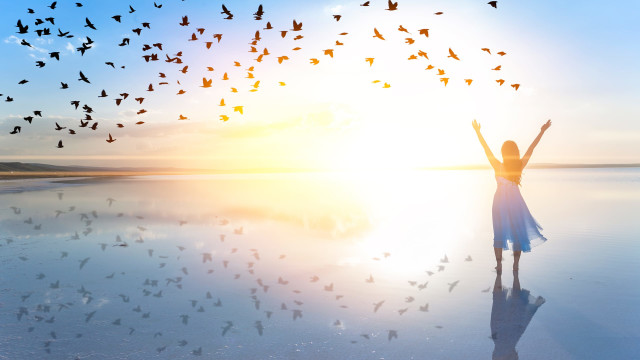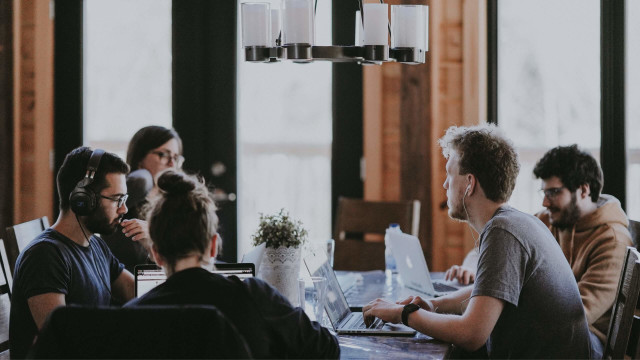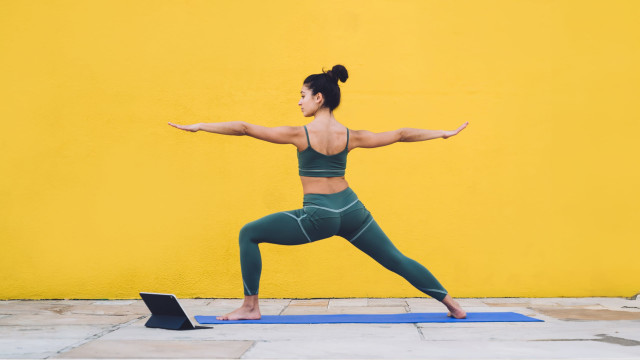Mindfulness Got Me Off Autopilot

After finding mindfulness in her late 20s, Ellie Struble continues to reap the benefits more than a decade later. Here, she talks about cultivating gentleness with challenging emotions, why practice isn't a performance, and how daily hugs help her feel her best.
Q: How did you become introduced to meditation?
A: I first became introduced to mindfulness meditation in February 2007 after seeing an ad for a meditation open house being held every Friday evening at a local yoga studio.
I had a job I enjoyed in corporate wellness and was eating well and exercising regularly. I also had a lot of supportive people in my life, yet I still struggled with anxiety, sometimes leading to low-level depression. My husband and I were also processing that we'd need intervention to have children, so there was a lot of uncertainty and fear.
I started going to the meditation open house nearly every Friday, seeking help with my anxiety and depression. Through the teachings and the practice, I learned I could cultivate a more skillful and compassionate relationship with anxiety and low-level depression.
I could be with them, not be them.
What I've experienced over my years of practice is a way to strengthen the observing mind, reconnect to the moment by reconnecting with my body, and cultivate greater gentleness with challenging emotions.
Q: What's your top tip for a beginning meditator?
A: My biggest tip for beginning meditators is to expect restlessness. Often we come to the practice to achieve calm and de-stress (me too!), but when we sit down to practice being present with the breath, the body, and the mind, we see just how busy and agitated we often are. This is normal and workable.
The kinder we are to our restlessness and the more we notice it with gentle curiosity, the more likely we are to continue the practice and feel a sense of contentment. We train in befriending ourselves, including all our neuroses and complexities. And through that, we can uncover clarity and cultivate compassion.
Find a community or group to practice with (online or in-person). The once-a-week group practice motivated me to practice on my own.
Notice if you see your practice as one more thing you need to be good at like it's a performance. Notice any underlying feelings of inadequacies when it's challenging to stay present. I struggled with this for years, and it is was not helpful.
Two things that helped me with this "striving" were giving space to this habit pattern, noticing it without judgment — and then taking it a step further by opening to it with compassion, holding it gently like a baby.
Q: What does your daily meditation practice look like?
A: I am blessed to have two young children, so my practice is a little less regular these days. I do a formal sitting practice for 10 to 20 minutes, four or five days a week. I also practice mindfulness in my day-to-day activities, which helps me drop into the present moment.
I remember a teacher once saying that a formal meditation practice helps you remember to come back to the present moment when you're not meditating, and I find that to be true!
Q: What are the greatest benefits you've received from meditating?
A: Mindfulness meditation has helped me move from always being on "autopilot" to being more aware and not taking this precious life for granted. Don't get me wrong, I still run on autopilot sometimes, but I'm more apt to realize it sooner.
This cultivation of greater awareness lets me see how I'm relating to my thoughts and emotions. A big aha for me was learning not to believe my every thought and realizing my emotions aren't a reflection of my character, rather a transitory experience.
Increased awareness also gives me greater clarity about relating to others and the phenomenal world. It gives me a choice to listen and connect more, slow down, recognize the beauty in the seemingly mundane, savor the good moments, and cradle the challenging ones.
Q: Other than meditation, what daily tools do you use to feel your best?
A: One thing I've been focusing on over the past year is tending to my gut microbiome. I eat many high-fiber, whole foods and give my gut some downtime by fasting for 14 hours overnight, approximately five days a week.
Some other tools I use to support my wellbeing include not watching much TV, limiting time on social media, prayer and gratitude practice, listening to meditation talks, exercise, time outdoors (nature is a holder and a healer), finishing my showers with cold water, and hugging my kids and my husband.
Learn to live in the present moment with this course A Modern Guide to Mindfulness by meditation teacher Curtis Smith.
Header photo: Oliver Rossi/Stone/Getty Images

